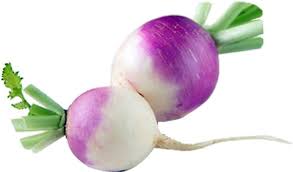1
/
of
1
My Store
Turnip Purple Top Desi Vegetable Seeds
Turnip Purple Top Desi Vegetable Seeds
Regular price
Rs. 29.00
Regular price
Rs. 55.00
Sale price
Rs. 29.00
Unit price
/
per
Tax included.
Shipping calculated at checkout.
Couldn't load pickup availability
Product Description
- Germination Time: 7-14 days
- Sunlight Requirement: 6-8 hours per day, in full sun
- Ideal Climate for Sowing: Suitable for all seasons, adaptable to varying climates (avoid extreme heat or cold)
- Plant Height: 12-18 inches
- Organic Fertilizer Requirement: Use 1-2 cups of well-decomposed cow dung or vermicompost per plant per week for optimal growth
- Life Span: Harvest within 60-75 days of sowing
- Ideal Growing Temperature: 15-25°C
- Harvesting Time: Harvest when roots reach desired size, usually 2-3 inches in diameter
- Maintenance Required: Low to moderate
- Ideal Grow Bag Size: Suitable for 12x12 grow bags or small garden plots
- Number of Seeds: 150+
Specifications of Turnip Purple Top Desi Vegetable Seeds
Turnips are versatile root vegetables grown for their edible roots and greens. They are easy to grow and provide a nutritious addition to meals. Purple Top Desi turnips prefer well-drained soil with a pH of 6.0-7.5. Plant seeds in rows spaced 12 inches apart to allow room for roots to develop.
Benefits / Uses of Turnips
- Rich in vitamins A, C, and K, as well as calcium, potassium, and dietary fiber
- Turnip greens are nutritious and can be cooked like spinach or kale
- Open-pollinated seeds allow for saving seeds from mature turnips for future plantings
Planting and Care for Turnips
- Sowing Turnip Seeds: Plant seeds 1/4 inch deep in well-prepared, moist soil. Thin seedlings to 4-6 inches apart once they reach a few inches tall.
- Growing Turnips: Keep soil consistently moist, watering deeply when the top inch of soil feels dry. Mulch around plants to retain moisture and suppress weeds.
- Harvesting Turnips: Harvest turnip roots when they are firm and reach 2-3 inches in diameter. Greens can be harvested as needed once plants are well-established.
- Precautions While Growing Turnips: Protect young plants from pests like aphids and flea beetles. Rotate crops annually to prevent soil-borne diseases.
Common Problems and Solutions
- Watch for pests like flea beetles and aphids, which can damage turnip leaves and roots. Use insecticidal soap or neem oil as organic controls.
- Thin seedlings to prevent overcrowding, which can lead to small or misshapen roots.
Other Names
- Botanical Name: Brassica rapa
- Common Names: Purple Top Turnip, Desi Shalgam (in Hindi), and variations across regional languages
No. of Turnip Seeds in a Packet
- 100-150 seeds
Share


